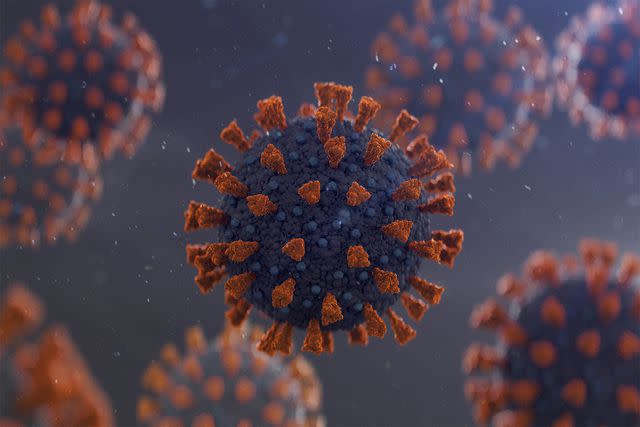COVID Linked to Lower IQ, Poor Memory and Other Negative Impacts on Brain Health
"COVID-19 poses a serious risk to brain health, even in mild cases, and the effects are now being revealed at the population level," clinical epidemiologist Ziyad Al-Aly said

Mounting scientific evidence suggests that being infected with SARS-CoV-2 — the virus that causes COVID — profoundly impacts brain health in many ways.
Ziyad Al-Aly, a physician and clinical epidemiologist, wrote an essay for The Conversation — which was later republished by Scientific American — detailing the numerous studies that highlight what he describes as the "indelible mark" that COVID leaves on the brain and its functioning.
Al-Aly, who is director of the Clinical Epidemiology Center at the VA Saint Louis Health Care System in Missouri, wrote that he has been studying long COVID since early reports of the disease and before the term was even coined by the medical community.
He explained in his essay that "large epidemiological analyses" showed that people who had COVID were at an increased risk of cognitive deficits including memory problems. A study of people with a mild to moderate form of the virus showed significant, prolonged inflammation of the brain and changes that "are commensurate with seven years of brain aging."
Al-Aly also cited imaging studies done on people both before and after their COVID infections, which showed "shrinkage of brain volume" and "altered brain structure" after infection. Other research reveals that people who require hospitalization or intensive care amid their COVID infection may develop "cognitive deficits and other brain damage that are equivalent to 20 years of aging."
In addition, Al-Aly highlighted preliminary analysis pooling together data from 11 studies that showed that COVID increased the risk of development of new-onset dementia in people older than 60.
He also noted that autopsies performed on people who died with COVID revealed "devastating damage" in their brains. Autopsies of people who had severe COVID but died a few months later from other causes showed that the virus was still present in brain tissue, suggesting that "SARS-CoV-2 is not only a respiratory virus."
Never miss a story — sign up for PEOPLE's free daily newsletter to stay up-to-date on the best of what PEOPLE has to offer, from celebrity news to compelling human interest stories.
Studies assessing patients hospitalized with COVID who experienced brain fog indicate that the virus can disrupt the blood-brain barrier, "the shield that protects the nervous system, which is the control and command center of our bodies," Al-Aly wrote.

Most recently, Al-Aly said, a study published on Feb. 29 in the New England Journal of Medicineassessed cognitive abilities including spatial reasoning, memory and planning in nearly 113,000 people who had previously had COVID. "The researchers found that those who had been infected had significant deficits in memory and executive task performance," he wrote.
The deficits were seen among people infected with the virus in the early phase of the pandemic, as well as when the delta and omicron variants dominated.
According to Al-Aly, that same study found that "those who had mild and resolved COVID-19 showed cognitive decline equivalent to a three-point loss of IQ." Those with unresolved persistent symptoms — such as fatigue and shortness of breath — had a six-point loss in IQ, while people who had been admitted to the intensive care unit for COVID had a nine-point decrease.
Another study in the same issue of the New England Journal of Medicine, involving 100,000 Norwegians, documented worse memory function at several points in time up to 36 months after a positive COVID test.
"Taken together, these studies show that COVID-19 poses a serious risk to brain health, even in mild cases, and the effects are now being revealed at the population level," Al-Aly wrote in his essay.
"The growing body of research now confirms that COVID-19 should be considered a virus with a significant impact on the brain," he added. "The implications are far-reaching, from individuals experiencing cognitive struggles to the potential impact on populations and the economy."
For more People news, make sure to sign up for our newsletter!
Read the original article on People.


